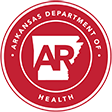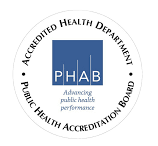History of Hometown Health Improvement
The Arkansas Department of Health undertook a strategic planning initiative in 1996 to ensure that they were properly focused on the future. The process was called ASPIRE, Arkansas Strategic Planning Initiative for Results and Excellence. One of the strategies developed through this process was a decision to shift the Department’s focus to emphasize assisting communities in assessing and responding to their unique health needs. To improve community health we must influence broad social, economic and political forces and the beliefs and behaviors on individuals, families, and communities. The overall health status of Arkansans will only be improved when state and local, public and private organizations and agencies team up to improve health and quality of life in communities. A team of state and local colleagues worked together to develop a plan for expanding the agency’s capacity in community health improvement. Hometown Health Improvement (HHI) was born.
History and Focus
HHI started in December 1998 with a pilot in Boone County. Since then HHI has added: 12 counties in 2000, 15 counties in 2001, 16 counties in 2002, 12 counties in 2003, and 7 in 2004. From 2005 to 2009 HHI has continued to experience phenomenal growth, reaching all 75 counties.
It is the philosophy of the Arkansas Department of Health that in order to improve the health of Arkansans we must focus on creating systems that promote, maintain, and improve health rather than on treating illness. The role of the local health unit is to provide leadership for the community to identify health challenges and to develop solutions. Communities must be full, active participants in the process. They must determine their unique problems and the solutions to address these challenges.
Hometown Health Improvement sites provide organized approaches to identifying and implementing effective community health strategies. This model emphasizes the elimination of duplication of effort. It promotes community based health status assessment and prioritization of health issues and needs. It allows communities to create systems that plan for health, promote healthy behaviors and provide services that are appropriate for their needs.
Focus on Evaluation
Developing methods of evaluation was a main focus of HHI in the early years. A list of phases was developed as a way to define the HHI continuum: (1) Mobilization, (2) Planning, and (3) Implementation and Evaluation. A "marketing" definition of HHI was also developed: Helping Communities Plan for a Healthy Tomorrow.
Donna Yutzy consulted with the HHI regional leadership to develop evaluation tools for local coalitions. The Quality Management Coalition Review is conducted on an annual basis with all counties. This assessment helps determine any issues or deficiencies that need to be addressed.
Technical Assistance
Technical assistance is provided to HHI sites to assist communities in achieving their identified goals. HHI Regional Managers are located in each of the five Department of Health regions. They serve on the regional leadership team and have general oversight for the coordination of HHI activities in the region. They provide technical assistance to communities, participate in the development of professional standards for the agency, ensure professional competence of HHI staff, connect communities with resources, and participate in statewide planning for HHI.
The regional staff also includes HHI Coordinators who assist the regional manager with coordination of HHI activities in the region. They assist with human resource management, providing technical assistance to communities, activity planning and training, and promoting Best Practices.
The regional HHI staff includes Health Educators and Rural Health Specialists to provide direct support and technical assistance to local communities. They work with and assist the Hometown Health Regional Team in planning, developing, implementing and sustaining Hometown Health efforts in the region.
The Department of Health broadened its efforts to work with schools through Hometown Health Improvement. The Department is continually working to build and maintain community partnerships to better serve students statewide. The Tobacco Settlement funds were used to hire 17 Registered Nurses to be Community Health Nurse Specialists (CHNS). The State School Nurse Consultant (SSNC) works with school nurses, school administrators, and Community Health Nurse Specialists to improve the health of school children in Arkansas.She provides professional leadership for all Arkansas school nurses and serves as a liaison for school nurses with state agencies. One Community Health Nurse Specialist is housed with the ADH Central Region, since there is no Educational Cooperative for the Central Arkansas counties. The remaining 15 nurses are housed at the 15 Educational Cooperatives around the State that serve as resources to all school districts, school nurses, and teachers. Community Health Nurse Specialists work with each Educational Cooperative and corresponding school districts on health issues. The other duties include:
- identifying and evaluating training needs of school nurses and targeted communities with respect to tobacco prevention and cessation and other related public health issues,
- participating in policy development and school-based enforcement of tobacco related policies,
- linking school-based tobacco prevention efforts with local community coalitions, and
- acting as liaison between schools, community coalitions, Hometown Health Improvement, and health care providers.
ADH and Hometown Health Improvement have also broadened efforts to work with schools specifically in support of Act 1220 and to address the statewide childhood obesity problem. The Community Health Promotion Specialists (CHPS) are employed by the Department of Health and housed in the Educational Cooperatives. Currently six CHPS are located at strategic, targeted locations around the state. The CHPS in the Central Region is located with the Department of Health’s Central Region office since there is no Educational Cooperative for Pulaski County. This position works with schools, community coalitions, health care providers, and the Hometown Health Regional Team to address the problem of childhood obesity. The primary focus of this position is working with schools and the community to support the implementation of physical activity and nutrition standards and policies approved by the State Board of Health and the State Board of Education.
To promote communication and simplify working relationships, two Community Nurse Specialist Supervisors manage the CHNS and the CHPS. These supervisors work closely in tandem with each other and serve on the Coordinated School Health team with the other main partners from Department of Education and Department of Human Services.
The local health unit administrators in each county serve as the local leader for the HHI process. This provides a local contact person and coordination of partners for each county in Arkansas. The local administrator helps coordinates community training, presentations, linkages with key stakeholders, building community partnerships, identifying assets and resources, and assisting in the development and implementation of community public health assessment.
State level coordination is provided through the Center for Local Public Health at the Department of Health central office in Little Rock. The HHI branch chief serves on the Center’s leadership team and provides the overall direction for HHI and promotes coordination and collaboration with other agency partners as well as outside organizations. The HHI Section Chief is responsible for developing and maintaining state-level partnerships, coordinating staff and program development at the state level, managing fiscal appropriations, and producing state and federal reports.


